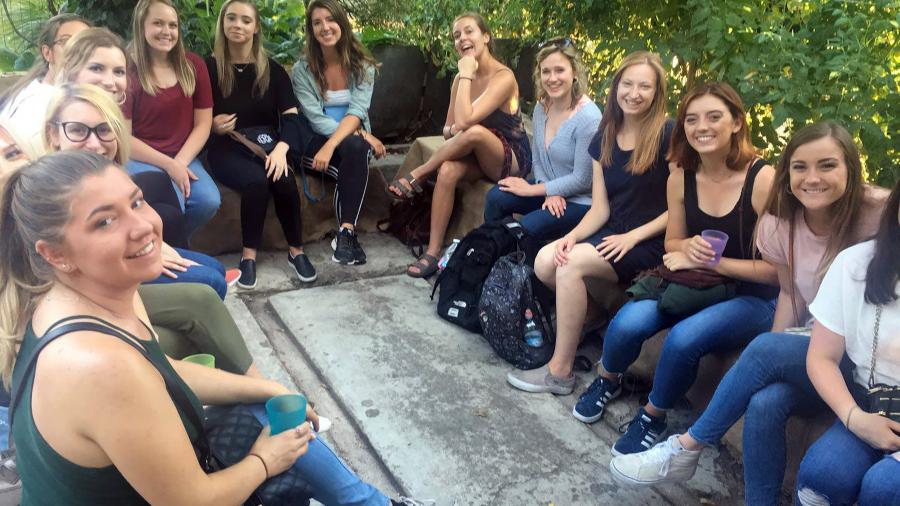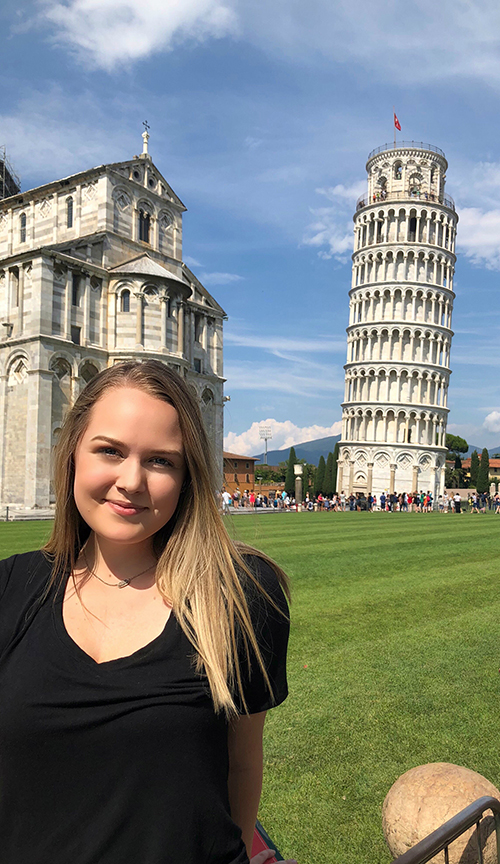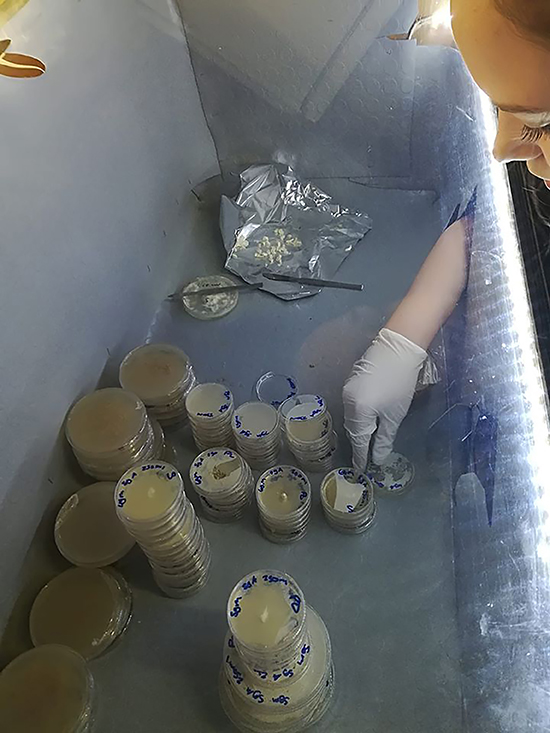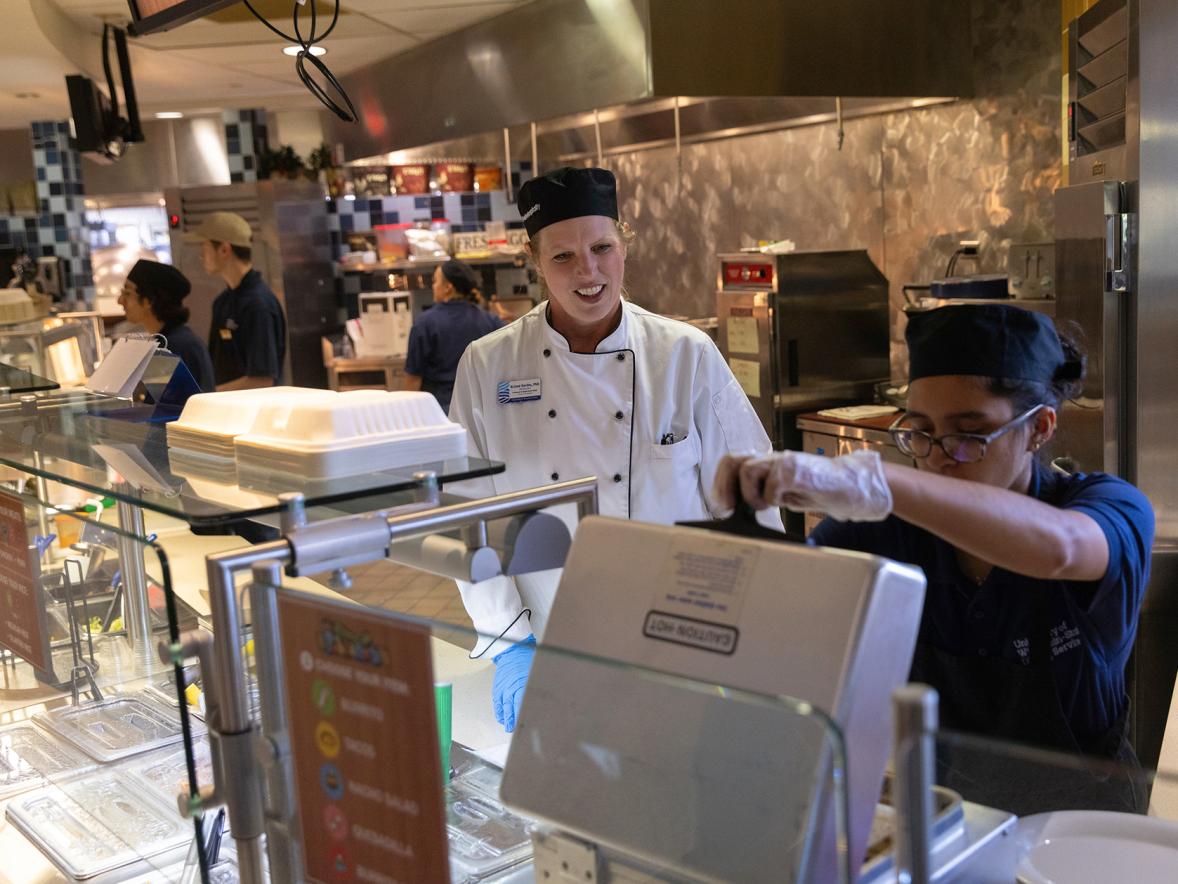
When she returns to classes this fall at University of Wisconsin-Stout, Samantha Bibbs will have a different perspective the next time she drinks a cup of coffee, eats a mushroom or thinks about Italy.
Beginning her junior year in the food science and technology program, Bibbs, from Mankato, Minn., had an educational summer interning with a sustainably-focused food company. The company, Funghi Espresso, grows mushrooms using coffee grounds. Several varieties of mushrooms then are sold to restaurants and at farmers markets.
Bibbs’ internship, which ended in early August, came with a bonus: It was in Florence, Italy.
 After looking into study abroad options through UW-Stout’s Office of International Education, Bibbs found a partnering program with the organization Cultural Experiences Abroad and the University of New Haven in Connecticut.
After looking into study abroad options through UW-Stout’s Office of International Education, Bibbs found a partnering program with the organization Cultural Experiences Abroad and the University of New Haven in Connecticut.
In Florence she took two classes, one on the culture of business in Italy that coincided with her internship class. The experience, which included living in Florence with other students from around the U.S. while also sightseeing in cities throughout Italy, was everything and more that Bibbs expected.
“I like how small Florence feels. It’s a major city but never feels too big,” she said, adding that the language barrier surprisingly wasn’t a major issue.
Florence is the capital of the Tuscany region in north central Italy, with close to 400,000 residents and a metropolitan area of about 1.5 million. It’s known for art, architecture, fashion and coffee, with historic cafes and many coffee shops.
Her role with Funghi Espresso was to experiment with growing mycelium, tubular filaments that develop into mushrooms. The company would prefer to begin growing mycelium rather than buying it to reduce expenses, she said.
Funghi Espresso gets the used coffee grounds for free; employees on bikes collect them from restaurants, cafes and coffee shops. The coffee grounds are inoculated with mycelium and left in the dark for 20 days before being exposed to light to finish the growing process.
Funghi Espresso is part of the so-called blue economy, creating something from a waste product while minimizing environmental impact. Waste from the mushroom production process is composted and then used to grow organic vegetables.
Bibbs conducted experiments on mycelium, using knowledge from her microbiology class at UW-Stout. She knew how to make her own petri dishes and create the proper environment for growth.
 She was “moderately successful” with her experiments, she said. “While there was lots of growth, sometimes there were contaminants because Funghi Espresso is not a lab. There was lots of room for contamination.”
She was “moderately successful” with her experiments, she said. “While there was lots of growth, sometimes there were contaminants because Funghi Espresso is not a lab. There was lots of room for contamination.”
She gave a presentation on the company at an apertivo, a postwork social hour in Italy, that included members of her other summer class, which was on the food and wine culture of Italy. “In Italy the culture of growing things naturally is more common than in America,” she said.
According to Professor Cynthia Rohrer, director of UW-Stout’s food science and technology Bachelor of Science program, being more sustainable like Funghi Espresso is a “major issue for the food industry” in the U.S. including supply chain, ingredient manufacturing, product manufacturing, packaging and distribution.
“Food and beverage companies must be more sustainable, and we as food scientists discuss initiatives that are implemented from agricultural steps through final use and disposal of products,” Rohrer said.
Bibbs has a strong interest in the issue, Rohrer said. “She is very considerate and conscientious of the growing need for sustainability in many areas of the food industry.”
Seeing a sustainable food system in operation has reaffirmed what Bibbs has learned at UW-Stout.
“This experience has given me a taste of international business and a certain level of respect for other cultures that I intend on bringing home with me. In order to be successful, you need to think outside the box to come up with a creative solution to a real-life problem,” she said.
Study abroad opportunities
About 225 UW-Stout students studied abroad in 15 countries during the 2017-18 academic year, according to Andria Morse, education abroad coordinator at UW-Stout’s Office of International Education.
Along with Italy, students took classes in Argentina, Australia, Belize, China, Costa Rica, Estonia, France, Germany, Greece, Ireland, Netherlands, New Zealand, Spain and United Kingdom.
The office is working to expand study abroad opportunities by developing new overseas partnerships, some in additional countries, and working with Stout University Foundation to provide scholarships, Morse said.
###
Photos
Top: Samantha Bibbs visits the Leaning Tower of Pisa in Pisa, Italy, during her summer studying in the country.
Bottom: Samantha Bibbs, a food science major, conducts mycelium-growing experiments at Funghi Espresso in Florence, Italy.







